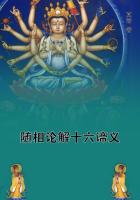But Cupid being now recovered from his wound, and not able longer to bear the absence of his beloved Psyche, slipping through the smallest crack of the window of his chamber which happened to be left open, flew to the spot where Psyche lay, and gathering up the sleep from her body closed it again in the box, and waked Psyche with a light touch of one of his arrows. "Again," said he, "hast thou almost perished by the same curiosity. But now perform exactly the task imposed on you by my mother, and I will take care of the rest."Then Cupid, as swift as lightning penetrating the heights of heaven, presented himself before Jupiter with his supplication.
Jupiter lent a favoring ear, and pleaded the cause of the lovers so earnestly with Venus that he won her consent. On this he sent Mercury to bring Psyche up to the heavenly assembly, and when she arrived, handing her a cup of ambrosia, he said, "Drink this, Psyche, and be immortal; nor shall Cupid ever break away from the knot in which he is tied, but these nuptials shall be perpetual."Thus Psyche became at last united to Cupid, and in due time they had a daughter born to them whose name was Pleasure.
The fable of Cupid and Psyche is usually considered allegorical.
The Greek name for a butterfly is Psyche, and the same word means the soul. There is no illustration of the immortality of the soul so striking and beautiful as the butterfly, bursting on brilliant wings from the tomb in which it has lain, after a dull, grovelling caterpillar existence, to flutter in the blaze of day and feed on the most fragrant and delicate productions of the spring. Psyche, then, is the human soul, which is purified by sufferings and misfortunes, and is thus prepared for the enjoyment of true and pure happiness.
In works of art Psyche is represented as a maiden with the wings of a butterfly, alone or with Cupid, in the different situations described in the allegory.
Milton alludes to the story of Cupid and Psyche in the conclusion of his Comus:--"Celestial Cupid, her famed son, advanced, Holds his dear Psyche sweet entranced, After her wandering labors long, Till free consent the gods among Make her his eternal bride;And from her fair unspotted side Two blissful twins are to be born, Youth and Joy; so Jove hath sworn."The allegory of the story of Cupid and Psyche is well presented in the beautiful lines of T. K. Hervey:--"They wove bright fables in the days of old When reason borrowed fancy's painted wings;When truth's clear river flowed o'er sands of gold, And told in song its high and mystic things!
And such the sweet and solemn tale of her The pilgrim-heart, to whom a dream was given.
That led her through the world, Love's worshipper, To seek on earth for him whose home was heaven!
"In the full city, by the haunted fount, Through the dim grotto's tracery of spars, 'Mid the pine temples, on the moonlit mount, Where silence sits to listen to the stars;In the deep glade where dwells the brooding dove, The painted valley, and the scented air, She heard far echoes of the voice of Love, And found his footsteps' traces everywhere.
"But never more they met! Since doubts and fears, Those phantom-shapes that haunt and blight the earth, Had come 'twixt her, a child of sin and tears, And that bright spirit of immortal birth;Until her pining soul and weeping eyes Had learned to seek him only in the skies;Till wings unto the weary heart were given, And she became Love's angel bride in heaven!"The story of Cupid and Psyche first appears in the works of Apuleius, a writer of the second century of our era. It is therefore of much more recent date than most of the legends of the Age of Fable. It is this that Keats alludes to in his Ode to Psyche.
"O latest born and loveliest vision far Of all Olympus' faded hierarchy!
Fairer than Phoebe's sapphire-regioned star Or Vesper, amorous glow-worm of the sky;Fairer than these, though temple thou hast none, Nor altar heaped with flowers;Nor virgin-choir to make delicious moan Upon the midnight hours;No voice, no lute, no pipe, no incense sweet, >From chain-swung censer teeming;No shrine, no grove, no oracle, no heat Of Pale-mouthed prophet dreaming."In Moore's Summer Fete, a fancy ball is described, in which one of the characters personated is Psyche.
" not in dark disguise to-night Hath our young heroine veiled her light;For see, she walks the earth, Love's own.
His wedded bride, by holiest vow Pledged in Olympus, and made known To mortals by the type which now Hangs glittering on her snowy brow, That butterfly, mysterious trinket, Which means the soul (though few would think it), And sparkling thus on brow so white, Tells us we've Psyche here to-night."















